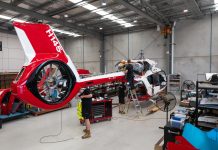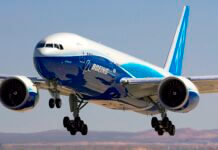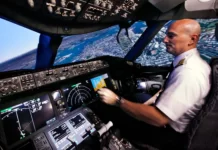
When a person has a job, there’s dignity. When a company decides to cut those jobs and shift the work to artificial intelligence (AI) or automation, they steal a person’s dignity in the name of shareholder value. If you doubt those words, just ask the 4,000 people being laid off by Lufthansa or the thousands of workers replaced at United Airlines, which said it has cut 4 percent of its workforce this year and plans to cut another 4 percent in 2026 – all replaced with so-called AI. Anyone remember what happened when the HAL9000 went bonkers in Stanley Kubrick’s seminal 2001: A Space Odyssey?
Don’t get me wrong. I love money and I love capitalism when it works, and I’m no Luddite as anyone who has seen my office and studio will attest. At last count I have four active computers, multiple screens, a podcast studio, two video cameras, four still cameras and assorted equipment. I’ve tested AI systems and the best I can say is that they are indeed a lot like humans. Sometimes they’re right, sometimes they’re wrong, and sometimes, AI systems, just like humans, lie. Just ask the nerd code monkeys (or programmers if you will) who designed them.
It’s not just aviation of course. Amazon said it would cut 14,000 corporate jobs this year and replace workers with AI while Walmart CEO Doug McMillon warned at a company event in September that AI is set “to change literally every job” and that his workers would have to “adapt”.
But closer to home in aviation, AI is marching ahead. Not a week goes by that my email inbox is not filled with airlines, MROs, and everyone in the travel value chain loudly touting their latest AI ‘paradigm shift’ that will ‘revolutionise’ the aviation industry.
The US Federal Aviation Administration (FAA), which is not exactly known for its ability to induct cutting-edge technology into its systems, is reported to be using AI to help the agency analyse large amounts of safety data, such as near misses, more quickly than humans alone could. Trust me, you don’t want to be anywhere near an airplane when the FAA tries to implement new technology. The FAA’s use of AI has caught the eyes of the US Congress, which is also not the sharpest tool when it comes to tech. Representatives are asking the FAA what it’s doing with AI and have said they want AI to “support” agency employees, not replace them. At least they get that part right.
In Singapore too, AI is said to be the next big thing. A recent report showed that up to 30 percent of the 60,000 jobs in the aviation industry there could be “redesigned” over the next five years, because of factors such as artificial intelligence. The government there has set up a S$200 million “manpower fund” to support unions, aviation companies and education providers to better attract, develop and retain the aviation workforce. While the money is all well and good, the idea that you are going to “retrain” or “upskill” a 55-year-old employee who’s been driving a bag cart for 30 years to suddenly be a computer programmer is ludicrous.
And the last time I was in Singapore I went to a SATS lounge where they had replaced an older worker with a robot to collect used dishes. Now that might be a good use of automation, according to the chief financial officer, but what about that likely retired person who had the job and wanted the job because it gave her human contact and some extra money (Singapore is an expensive place to be retired)? Collecting dirty dishes might not sound like a great job, but any job, done well and decently compensated, has dignity.
I remember when I returned to the great plains of Oklahoma from my first overseas posting in Sri Lanka where I worked for an NGO during the civil war there. I had earned my master’s degree from Columbia University, travelled the world, and when I got home, I couldn’t get a job in my field even with an Ivy League education. But I was raised to work so I called a friend who I had worked for on a road crew during my high school summers. I shovelled and raked asphalt, learned how to operate a backhoe and a front-end loader and could also drive an 18-wheeler and shift 13 gears without a clutch. I didn’t exactly enjoy being in that position, but when I got my first paycheck, I felt proud I had a job. It gave me dignity to work hard and get paid for it.
We survived the first industrial revolution, and mankind will (hopefully) survive this so-called AI revolution. But the revolution that people like the CEOs of Lufthansa and United and SATS (and Jeff Bezos and Mark Zuckerberg) need to be concerned with is the revolution that is coming from the legions of unemployed people who have been stripped of their dignity in the name of shareholder value by millionaire airline CEOs and billionaire tech robber barons. And God help us all if a true AI emerges and joins with a quantum computer. Then we’re all screwed. And I’m curious; when everyone is replaced with AI, who will be able to afford a plane ticket – Rosie the Robot?




















